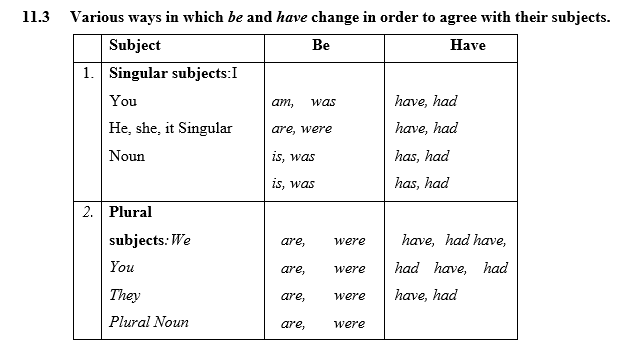Lesson eleven
11.1 SUBJECT – VERB AGREEMENT
11.2 Present tense
A verb and its subject must agree in number. To agree means that if the subject is singular, the verb must be in singular form. If the subject is plural, the verb form must be plural.
Examples:
The baby cries every morning – SINGULAR
The babies cry every morning – PLURAL
Rules for subject-verb Agreement
- Singular subject The man drives a
Add -s or -es to the verb She teaches in a primary school.
He studies his map.
- Plural subject: The men drive
Do not add -s or -es They teach in primary schools.
to the verb We study our maps.
- For I or You I hate Do not add -s or -es to the verb You like dogs.
I admire actors.
When a sentence has a compound subject i.e. two subjects joined by and, the plural form of the verb is used.
Examples:
John and James work at Naivas Supermarket.
The teachers and the students respect one another a lot.
Subject-verb Agreement with be and have
The verbs be and have change their forms in special ways in order to agree with their subjects.

11.4 Exercise 11
Put appropriate Present tense verbs in the blank spaces in the following sentences.
Ensure that the subject agrees with the verb and that the sentence makes sense.
- The dogs their
- She at the
- They the road at the Zebra-crossing.
- Many blind people dogs as
- We dogs every
- Mark always his
- I often with
- Mwangi his aunt in Mombasa.
- He and Jane next
- The directors the
